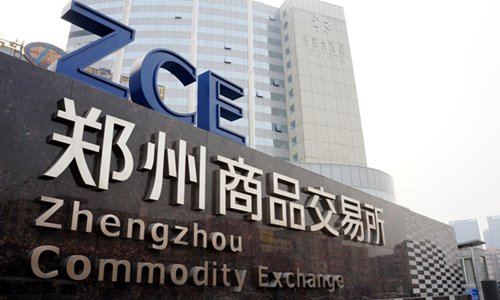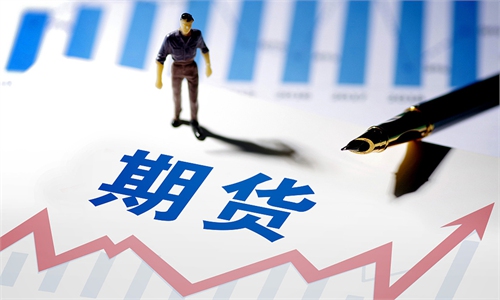China starts trading of peanut futures, experts say contracts can guide crop’s spot price

A view of Zhengzhou Commodity Exchange File photo: VCG
China started trading of peanut futures on the Zhengzhou Commodity Exchange on Monday, with the main contract surging by more than 12 percent on the first trading day.
The launch of the peanut futures comes amid volatility in the crop's price, and it's part of the government's effort to enrich the futures market for agricultural products. It followed the recent launch of a pork futures contract on the Dalian Commodity Exchange.
The first four peanut contracts were launched on Monday with a basis price of 9,350 yuan ($1,447.4) per ton. By the end of the trading session, the key contract for October had surged by 12.34 percent to 10,504 yuan per ton.
Peanut prices in China have remained high in recent months, after reaching an eight-year peak in May. The price is now the highest since around 2016, according to media reports. China is the biggest peanut producer in the world, accounting for about 35 percent of global production.
"Price volatility has turned peanuts into more of a cash crop than a grain and oil crop, which it should be," said Jiao Shanwei, editor-in-chief of cngrain.com, a website specializing in grain news.
According to Jiao, price volatility partly reflects the continuous slump in peanut-growing areas in recent years.
"It's very hard for peanuts to be planted on a large scale in China like other crops, including wheat and corn. Lack of mass planting makes it difficult for growers to use modern machinery, and that makes its growing costs higher," Jiao told the Global Times.
Considering the unstable prices, regulators launched the peanut futures in hopes they would guide the spot market, analysts said.
"In the past, farmers just changed their planting volume without much guidance from the market. Now, they can judge demand for the crop partly from gains and declines in the futures market, and that will mean more stable, market-driven supplies," Jiao said.
A statement by the China Securities Regulatory Commission also said that peanut futures trading will provide farmers and enterprises with open, consistent and transparent price signals as well as effective risk-management tools.
Global Times




